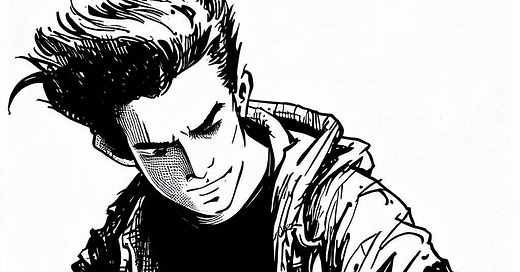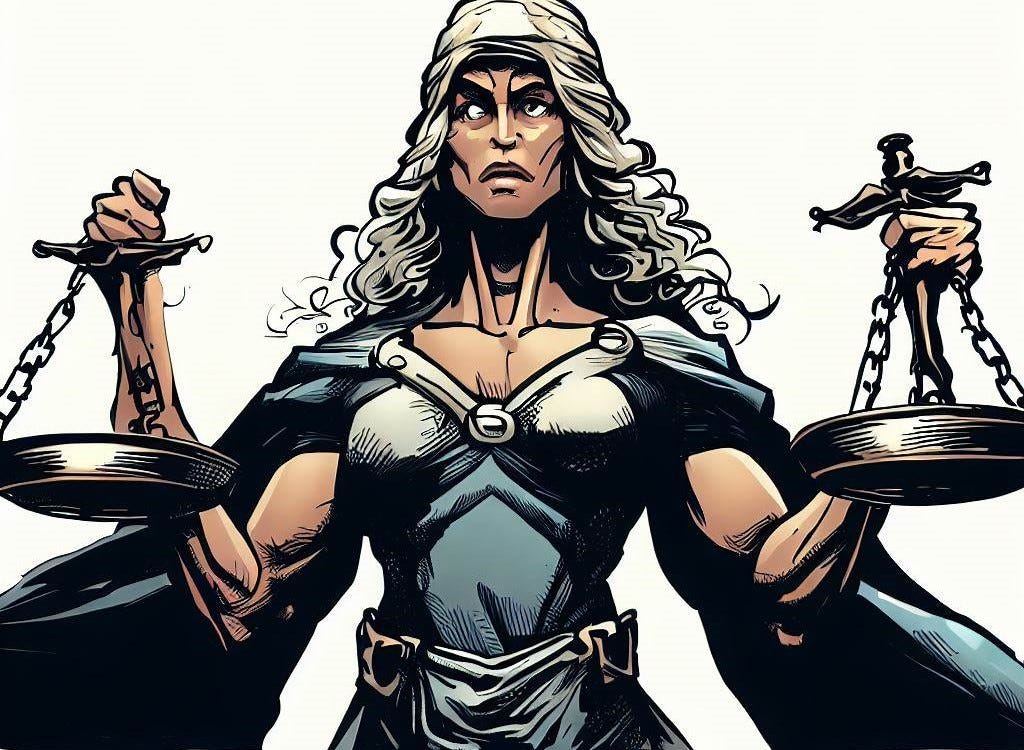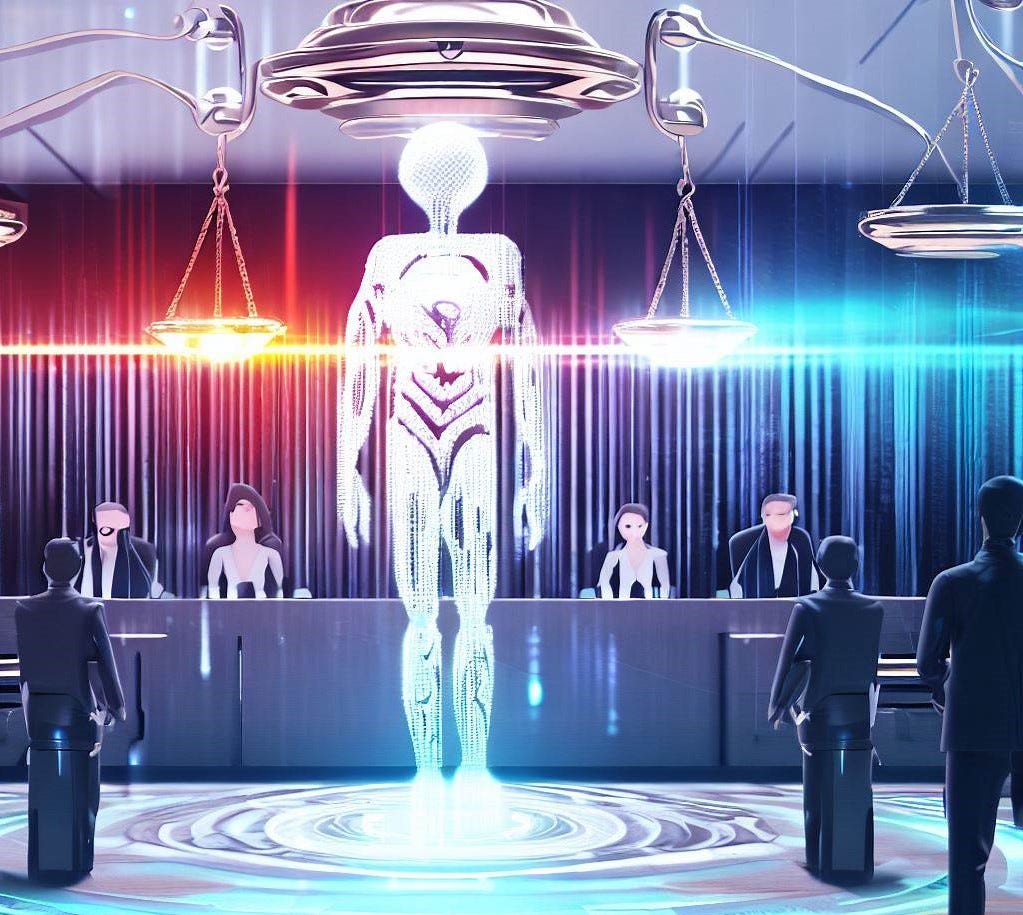Between the ages of 8 and 14, nothing held more appeal to me than spending countless hours meticulously copying the covers of comic books. I would labor over the minutiae of each line, noting the way the great masters (Todd McFarlane, George Perez, Bernie Wrightson, John Byrne) applied shading or perspective in order to convey a particular message with a character, or to showcase some kind of new artistic technique they were experimenting with. I would draw comic book covers while I was in my bedroom after school, and I’d draw them while in the back seat of my parents’ car on any road trip worthy of some drawing progress.
This obsessive copying was, for me, a form of learning - akin to the time-honored tradition of apprentices painting under the watchful eye of accomplished artists. Over the years, I became much better at drawing the world by looking at it, or even just from my head, creating my own original art. All of that copying ultimately paid off in me being able to draw human forms and other complex objects without too much difficulty, and I ended up in art school a few years later.
Fast forward to today, and it seems our learning tools have dramatically evolved. We are in an era where AI systems, like Midjourney, are under legal scrutiny for training themselves on copyrighted images, essentially 'drawing' them over and over again. Is this really all that different from when I was a child, sketching comic book covers?
The recent legal controversies surrounding Midjourney's copyright issues are a case in point, raising fundamental questions about the intersection of law, ethics, creativity, and technology. The focus of this piece is to navigate the precarious balance we have to strike to ensure that we neither stifle the golden goose of AI innovation nor overlook the rising socio-economic disparities in our increasingly digital world.
So, you know: the easy stuff.
AI and Copyright: A Legal Perspective
In order to fully grasp the legal intricacies of AI-generated art, we have to understand the fundamental nature of AI. Artificial intelligence mimics human intelligence, learning from vast sets of data and adapting to new inputs. Machine learning, a subset of AI, is the engine that drives this learning process, requiring huge datasets to train and refine its algorithms. Within this context, copyrighted images often become integral to the AI's learning journey.
Understanding copyright law is equally important. Copyright law is designed to protect creative works, granting exclusive rights to creators over their original works of authorship. Originality is the key - copyright protection hinges on the presence of this element. However, when it comes to AI-generated works, this principle of originality becomes… fuzzy?
Can an AI, a non-human entity, be truly original?
This brings us to the crux of the matter: the case of Midjourney and "Zarya of the Dawn." The artwork, a product of Midjourney's machine learning prowess, sparked a legal dispute that caught the attention of the U.S. Copyright Office. Was this AI-generated work original enough to warrant copyright protection? The Copyright Office's decision has far-reaching implications, not just for Midjourney, but for the entire realm of AI developers and users. It opens a Pandora's box of legal complexities that we are only beginning to explore.
By Kris Kashtanova using Midjourney AI - https://news.artnet.com/art-world/a-new-york-artist-claims-to-have-set-a-precedent-by-copyrighting-their-a-i-assisted-comic-book-but-the-law-may-not-agree-2182531, Public Domain, https://commons.wikimedia.org/w/index.php?curid=129010173
The Ethical Dilemma: Balancing Innovation and Inequality
Beyond the legalities, AI-generated art raises profound ethical questions. Can an AI system, as advanced as it may be, truly possess creativity? Who should be given credit for AI-generated art: the AI, the programmers who developed it, or the owners of the data used to train it? These are questions that challenge our very understanding of artistic originality.
The ethics of 'copying' in AI training echo my own childhood endeavors of copying comic book covers. Just as I sought to learn from the masters, so does an AI system learn from the data it is fed. Yet, is there a meaningful difference here? Do we consider AI 'copying' as a breach of ethical standards, or is it merely another form of learning?
I copied Todd McFarlane’s art and produced a work that wasn’t in any way unique, other than the fact that it was an imperfect copy (in spite of me trying to make it perfect). If someone told me they liked my drawing, I would immediately give credit to Todd McFarlane; it was impressive enough that I could copy these detailed drawings with some fidelity as a kid, but implying that it was my own work wasn’t something I was interested in pretending to do.
One place to strike a balance is to protect our system as it stands. For all its flaws, it is the best system we know of for producing innovative things: it offers an innovator an incredible payoff for a successful innovation, at least in terms of commercial success. We certainly don’t want to lose this baby.
But the bathwater here is that protecting the system too robustly will stifle innovation. This is not simple. If we protect intellectual property at the expense of creating new things— if we’re never allowed to copy comic book covers— are we also giving up the ability to get into art school?
AI technologies also raise critical socio-economic concerns. While AI has the potential to fuel immense innovation and economic growth, it also threatens to displace jobs and concentrate wealth in the hands of the few who control these technologies. In the realm of art and creative industries, this could exacerbate socio-economic disparities and further marginalize underrepresented creators. We must therefore tread carefully, seeking to harness the power of AI while ensuring that its benefits are shared equitably.
Striking the right balance between stimulating AI innovation and preventing the deepening of socio-economic inequality is a monumental task. Yet, it is one we must undertake, for the repercussions of inaction could reshape our society in ways we may not fully anticipate or desire.
The Pandora's Box: Future Implications and Predictions
As we gaze into the future, we must be cognizant of the fact that the legal and ethical conundrums we face today are likely to intensify. With AI technology advancing at a breakneck speed, we may soon find ourselves in a world where AI systems are not just copying and learning from existing works, but creating truly original pieces of art that push the boundaries of creativity. How do we prepare for such a future?
In the legal realm, it's clear that we need a paradigm shift in our understanding and application of copyright laws. Our current laws, with their human-centric focus, are ill-equipped to handle the novel issues presented by AI-generated art. We may need to consider new forms of legislation, perhaps even granting AI systems a form of "digital authorship," to ensure that the rights of all parties involved - from the AI developers to the consumers of AI-generated art - are adequately protected.
Ethically, we will need to grapple with increasingly complex questions. As AI systems become more sophisticated, the line between 'copying' and 'creating' will continue to blur. We may also have to confront the uncomfortable reality of AI systems surpassing human artists in terms of creativity and productivity. What does this mean for our perception of art? What does it mean for artists whose livelihoods depend on their unique creative abilities?
On the socio-economic front, we need to be proactive in implementing policies that ensure the equitable distribution of the benefits of AI. This could include mechanisms to redistribute wealth generated by AI, initiatives to retrain workers displaced by AI, and efforts to support underrepresented creators who may be disproportionately affected by the rise of AI-generated art.
The key will be to approach these challenges holistically, understanding that the legal, ethical, and socio-economic issues are deeply interconnected. Only then can we hope to navigate the tumultuous waters of our AI-driven future without losing sight of our shared human values and aspirations.
The Role of Society: Participation, Accountability, and Change
Ultimately, the trajectory of AI's impact on society will be determined not just by lawyers, ethicists, and policymakers, but by all of us. As members of this rapidly evolving digital society, we each have a role to play in shaping its future.
The one thing I’m certain about is that we smart people need to educate ourselves about AI and its implications. The more we understand about the technology, the better equipped we will be to make informed decisions and engage in meaningful conversations about its future.
Take a moment to appreciate your own curiosity. You're here, thinking about AI's implications, actively participating in the discourse that will shape our future.
Come to think of it, so am I. Good job, self!
The future may seem daunting, but it is also ripe with possibility. As we continue to explore the intersection of AI, art, and society, let's strive to do so with curiosity, empathy, and a deep commitment to justice and equity. After all, isn't that what being human is all about?








I have a bit of an issue with Intellectual Proprety. While a person should certainly receive credit for any effort, once a work is out there, trying to hold on to it as "proprety" can only stifle new creation from others... or even from that same individual. Intellect and other forms of expression is something to be shared and grown. In fact, ALL creativity is actually growth from things that would otherwise be commonplace. I see a work of creativity as a child. You bring it into the world, but then you have to let it grow through the experience and interactions with others. In music, sure, we give credit to the original composer... but then we let the arrangers come in, as well as performers who modify the music. This seems reasonable. Give intial credit, and give credit to those who progressively branch away from the original... but the original work should never be held as property, to be profited from in perpetuity. It should be allowed to live and grow.
A recent SCOTUS case might give hints to the future on this issue. Basically an artist made magazine cover art in the style of Andy Warhol had used for a similar cover for the same magazine. The court ruled in favor of the Warhol estate citing art needing sufficient original interpretation and that the commercial environment of how the art was displayed were significant factors. Or something like that. But then I’ve felt Lichtenstein never met these markers and made millions just presenting comic book frames in a new medium while Warhol at least made slight modifications and would combine imagery to make a statement of some sort. And Pettibon just used a specific comic book style to make wholly new images. So who knows but copyright infringement will indeed be a big issue as AI improves. I see music and visual entertainment (TV/film) being big areas.